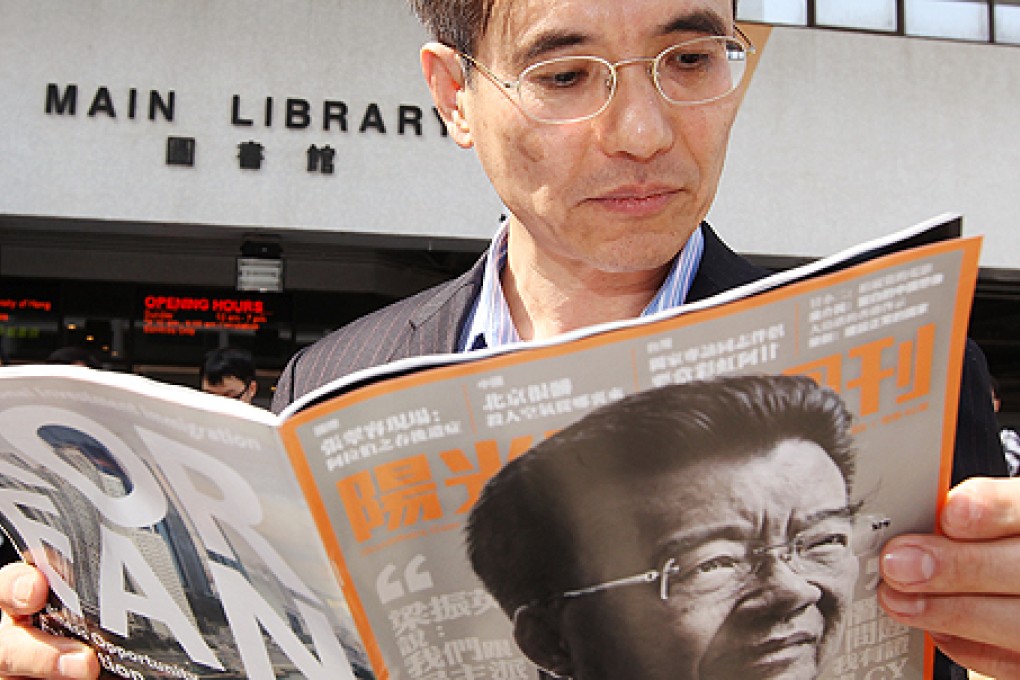Opinion | Award-winning weekly iSun Affairs to suspend publication
Hong Kong-based weekly iSun Affairs announced on Thursday it would stop its weekly print edition next week, bringing an end to an attempt by millionaire investor Chen Ping to establish a Chinese-language weekly magazine for China and Southeast Asia.

Hong Kong-based weekly iSun Affairs announced on Thursday it would stop its weekly print edition next week, bringing an end to an attempt by millionaire investor Chen Ping to establish a Chinese-language weekly magazine for China and Southeast Asia.
After three months, the iSun Media Group plans to restructure the publication into an "online platform" and re-launch as a monthly magazine, the company's chairman and president Chen Ping said on Thursday. He said he was looking for a new managing editor, but could not say how many journalists would stay on his company's payroll by next month.
"We need a publication that meets the requirements of the time," Chen said. "I knew several months ago that [the weekly] could not reach the level of development I wanted."
The move signals the end of an experiment that lasted only seven months. The high-profile departure of the chief executive, Chen Yizhong, and the relegation of the editor-in-chief, Chang Ping, to chief writer over the last months left observers guessing about the magazine's future.

ISun Affairs has been awarded two Society of Publishers in Asia (SOPA) awards, the Asian equivalent of the Pulitzers, and two honourable mentions last year. This year, it has been nominated for eight SOPA awards, which will be handed out next month.
